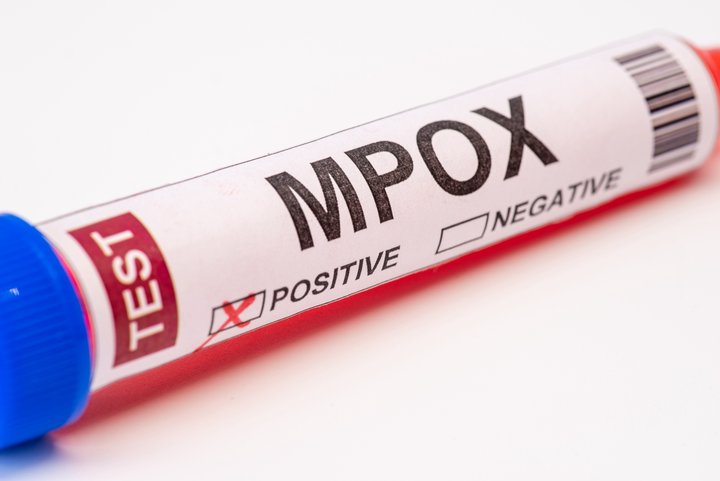In light of the World Health Organization (WHO) designating the latest monkeypox (mpox) outbreak a ‘Public Health Emergency of International Concern’, its highest alert level, we sat down with Dr. Yin Ye, BGI Group CEO, to ask him about mpox and how concerned people should be about catching it.

Q. What is mpox and what do we currently know about the latest outbreak?
A. Mpox was first discovered by scientists in 1958 and is an infectious disease caused by a virus from the Orthopoxvirus family, the same family as the smallpox virus. While smallpox has been eradicated since 1980, mpox has continued to recur on a regular basis, with the last major outbreak two years ago. WHO reports that between January 1st of 2022 and June 30th of 2024, there were 99,176 laboratory-confirmed cases of mpox globally.
In the last six weeks there has been an escalation in the number of countries, particularly in Africa, reporting mpox outbreaks, as well as cases outside Africa. This resulted in WHO giving mpox its highest alert level on 14 August 2024. Mpox has two clades; clade 1 is the Congo Basin clade, while clade 2 is the West African clade. It is the emergence of clade 1b, a variant of clade 1, that is concerning public health authorities as it spreads fast and is more deadly.
Q. How is mpox spread and how concerned should people be about catching it?
A. Mpox is largely spread by human-to-human close physical contact and touch. With an incubation period of up to 21 days, the symptoms start with a fever and muscle aches, followed by a rash and skin blisters filled with liquid. These symptoms do not appear immediately, which contributes to more people becoming infected, particularly as people are traveling much more often than in the past few years.
Usually, the human immune system can fight the virus, but the mortality rate of the 1b variant can be as high as 10%. In the latest outbreak, children under 15 have been particularly affected, in part due to high rates of child malnourishment in Africa and also because of living conditions.
People born after 1980 when smallpox was declared eradicated have also not had the advantage of receiving a smallpox vaccination, which can provide an 85% protection level. There are also vaccines for mpox and they will become more readily available in Africa, following the WHO listing two vaccines for emergency use purposes.
Q. How important is early detection of mpox and how can BGI help with this?
A. As we saw during the Covid pandemic, disease control is most effective where there is early detection, reporting, diagnosis and treatment. BGI’s experience in detecting specific viruses is important. Our Monkeypox Virus Nucleic Acid Detection Kit, which uses the fluorescence PCR method, can detect viruses at a concentration of 200 copies/mL in samples. Importantly there is no cross reaction with similar pathogens such as smallpox, cowpox, mousepox and vaccinia.
By delivering highly accurate results in less than an hour, the testing helps find outbreaks faster while also supporting healthcare professionals deploying vaccines. During the mpox outbreak in Europe in 2022, BGI’s mpox virus nucleic acid detection product obtained EU CE certification. The detection kit also helped confirm the first case of mpox in Saudi Arabia.
Q. Beyond detection, how can genomics help in the discovery of new variants?
A. Metagenomic sequencing and whole genome sequencing are powerful tools to help scientists identify and monitor for new variants of mpox. The high-throughput sequencing technology enables unknown pathogens to be identified and provides a scientific basis for the formulation of epidemic preventative strategies. This technique was successfully used in 2022 to identify the first case of mpox in mainland China and assist in emergency tracing.
Q. How are advances in biotechnology helping our response to public health crises?
A. As a result of the Covid pandemic, our understanding of viruses and infectious diseases has greatly improved. Scientists were able to quickly put mRNA vaccines to use, demonstrating that vaccines can be developed at the same time as a virus mutates. Also, the development of anti-Covid drugs was very fast, in part by using AI to assist in their design. I think this places all of us in a much stronger position to confront future public health crises. Above all else, taking a scientific perspective and only dealing in facts rather than speculation and accusations is the most important thing we should do, whether in fighting mpox or whatever the next public health crisis will be.
Q. How do you see where human beings stand in terms of fighting diseases?
A. Looking back at the history of the development of human society, it is largely a history of the struggle against viruses and diseases. Humanity has achieved major victories in dealing with smallpox and HCV, and after experiencing the Covid pandemic we have more new tools to fight viruses, which also allows us to see the dawn of defeating HIV, HBV and other viruses in the future. We also need to realize that despite all kinds of technologies at our disposal, human beings are ultimately only part of nature, and we should respect nature more.



